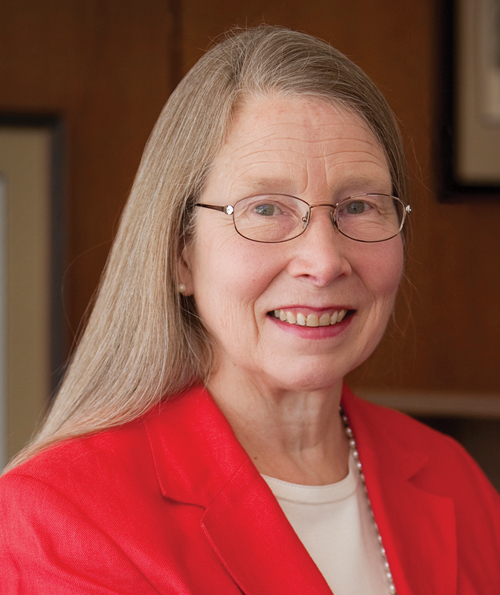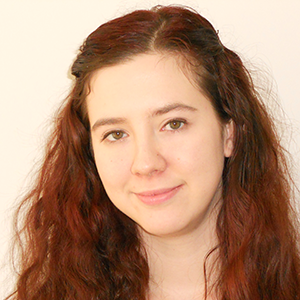Henry wins the Avanti award for use of yeast genetics in lipid research
The American Society for Biochemistry and Molecular Biology has named Susan A. Henry, professor and dean emerita at Cornell University, winner of the 2013 Avanti Award in Lipids. Henry is being recognized for her contributions outlining the genetics of control of phospholipid metabolism in yeast.

“I am deeply honored to receive to receive the Avanti Award, which has become the most significant award in lipid research due to the significant achievements and contributions of past awardees as well as the fact that it is supported by Avanti Polar Lipids, an organization whose quality products have enabled outstanding research in this field.”
Henry’s lab was the first to show that inositol, an essential precursor of phosphatidylinositol, plays a key role in regulation of phospholipid metabolism in yeast by identifying inositol-requiring mutant strains of yeast defective for INO1, a structural gene encoding inositol 3-phosphate synthase, and INO2 and INO4, regulatory genes that control phospholipid synthesis.
Identification of overproduction of inositol, or Opi−, mutants led to the identification of the OPI1 gene, encoding the repressor of phospholipid biosynthetic genes and the OPI3 gene encoding a phospholipid-N-methyltransferase, involved in phosphatidylcholine biosynthesis. This work led to the understanding that expression of nearly all phospholipid biosynthesis enzymes is regulated by inositol and that this regulation also requires ongoing phosphatidylcholine synthesis. More recent work from the lab has shown there is a link between inositol-containing sphingolipid synthesis and protein kinase C activation in response to low inositol levels.
Michael R. Culbertson of the University of Wisconsin–Madison, Henry’s first graduate student, says, “Because she has brought fresh thinking to the field of lipid research and because she has very likely influenced others to expand their way of thinking about this field, I believe Susan’s work is worthy of recognition.”
Henry received her Ph.D. in 1971 from the University of California, Berkeley. She did a postdoctoral fellowship sponsored by H. O. Halvorson at the Rosenstiel Basic Medical Sciences Research Center at Brandeis University and then took a position at Albert Einstein College of Medicine in 1978. In 1987, Henry moved to Carnegie Mellon University, where she served as a professor, head of the department of biological sciences from 1987 to 1991, and dean of the Mellon College of Science from 1991 to 2000. In 2000, she moved to Cornell University, where she is a professor of molecular biology and genetics and has served as dean for the College of Agriculture and Life Sciences. Henry’s work has been supported continuously by the National Institutes of Health, and she has been a recipient of the NIH MERIT award.
Henry will receive her award during the Experimental Biology 2013 conference in Boston, where she will deliver an award lecture. The presentation will take place at 8:30 a.m. April 21 in the Boston Convention Center.
Enjoy reading ASBMB Today?
Become a member to receive the print edition four times a year and the digital edition monthly.
Learn moreGet the latest from ASBMB Today
Enter your email address, and we’ll send you a weekly email with recent articles, interviews and more.
Latest in People
People highlights or most popular articles

From humble beginnings to unlocking lysosomal secrets
Monther Abu–Remaileh will receive the ASBMB’s 2026 Walter A. Shaw Young Investigator Award in Lipid Research at the ASBMB Annual Meeting, March 7-10 in Washington, D.C.

Chemistry meets biology to thwart parasites
Margaret Phillips will receive the Alice and C. C. Wang Award in Molecular Parasitology at the ASBMB Annual Meeting, March 7-10 in Washington, D.C.

ASBMB announces 2026 JBC/Tabor awardees
The seven awardees are first authors of outstanding papers published in 2025 in the Journal of Biological Chemistry.

Decoding how bacteria flip host’s molecular switches
Kim Orth will receive the Earl and Thressa Stadtman Distinguished Scientists Award at the ASBMB Annual Meeting, March 7–10, just outside of Washington, D.C.

Thiam elected to EMBO
He was recognized during the EMBO Members’ Meeting in Heidelberg, Germany, in October.

The timekeepers of proteostasis
Learn about the cover of the winter 2026 ASBMB Today issue, illustrated by ASBMB member Megan Mitchem.

